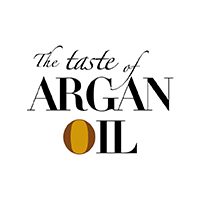Customers have become more aware of food labelled as ‘organic’, but what does this mean for the producer and the supplier?
The word ’organic’ has also become increasingly a branding mark to those manufacturers and suppliers who can afford it. Not only is this according to EU law proof of products for certain qualities, for example, it has been grown without the use of artificial fertilisers or pesticides and is free of artificial additives such as preservatives, colours etc., but also the certifying bodies in the country of origin and the supplier in the local market (e.g. in the UK) has paid the corresponding certification and license fee.
This fee depends on the certified body and also varies according to business size and turn-over, but in general favours, larger corporations as the initial registration fee are not linked to the number of organic products. A common misconception is that all ‘organic’ labelled food is pure. An ‘organic’ product can have other ingredients added to it, as long as it complies with the EU regulations.
When looking at a product labelled as ‘organic’, it is important to further investigate the details on the actual content to avoid paying extra for something that does not fulfil your expectations.
- Check for any * which may indicate only a minor proportion is grown and produced organically and thus, there is no promise that the final product complies with your organic expectations.
- Check the certified body and country it was certified: only within countries of the EU and certain associated countries, the level of organic certification and monitoring procedures are comparable.
- Research the product’s supplier and how they source their ingredients from the original producer. Organic produce is often imported, for example, by one EU member state and then freely distributed within the common market, where no additional control mechanisms are in place for all markets.
So how does organic certification relate to products such as Argan Oil (or sea salt or water)?
In Morocco, the Argan tree grows wild and rarely in plantations. It has perfectly adapted to the local climate and nutritional provisions are available only in a small part of southwestern Morocco. There is little other produce capable of growing, where the Argan tree grows, and hence, fertilisers and pesticides are not used. In addition, due to the unique relationship with the soil, this symbiosis allows the Argan tree to fight off disease and survive in its harsh desert environment. Ripe fruits from the Argan tree are only collected from the ground with this access strictly regulated by the local authorities (the king of Morocco).
The journey to producing Argan Oil then does vary from cooperative and company as most of the Argan Oil nowadays is used for cosmetic purposes. This means in many cases that the pressing is performed on an industrial scale, which often involves refinement or chemical extraction to produce a (very minor) ingredient in most hair or skin care products. This also means that the traditional way of pressing of the Argan Oil – only using selected fruits, nuts and kernels – is moved away from the women cooperatives.
In order to support and preserve the livelihood of these women, The Taste of Argan Oil works exclusively with women cooperatives that still produce Argan Oil for culinary purposes using their traditional know-how on the selection of fruits, nuts and kernels, which is often passed on from one generation to another as a family business.
It is also important to know that nothing is added or nothing is taken away from the Argan Oil we offer to you. We think that this can be best achieved by knowing and trusting our Moroccan partner cooperatives to produce a consistently high-quality great tasting Argan Oil. The only difference for the non-culinary application is that instead of roasting the kernels, the kernels remain unroasted for the pressing process.
We make sure that we have free access to the women working at our partner cooperative when it comes to overseeing the working conditions. These are all important aspects for us to provide you with not organically grown and produced Argan Oil, but also what we think is an ethically responsible and sustainable way of producing Argan Oil.
Our partner cooperatives are still owned by families living in the area (and not abroad), and so these microbusinesses cannot afford to pay the local certifying bodies or international monitoring organisations £1000s per year to become organically certified.
The main thing to remember is that the sourcing of high-quality ingredients combined with artisanal skill is the essence to a tasty product, labelled as organically certified or not. This all should come with a lot number indicating the date of pressing and a realistic use before date (usually 6-12 months after pressing) to give the best tasting experience and avoid buying expired bulk bought Argan Oil sold by main large-scale providers or wholesale resellers on the Internet.
